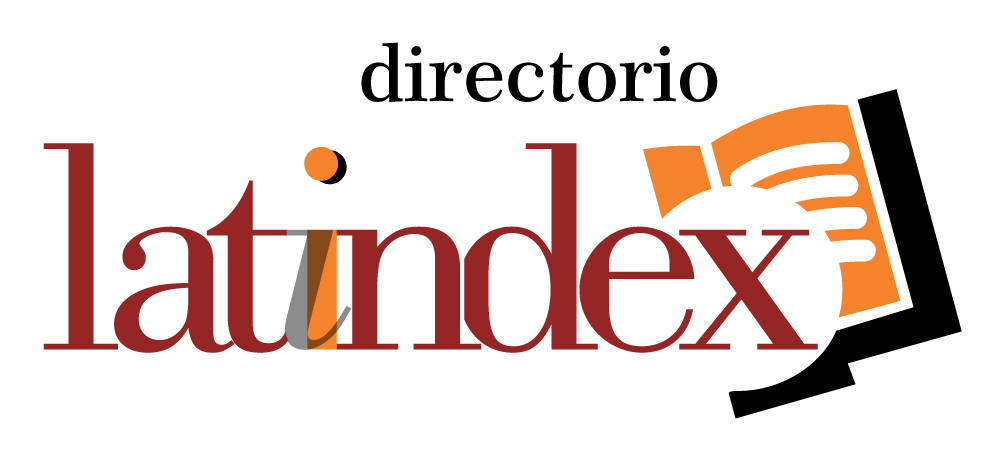Habilidades intrapersonales en la formación profesional en un instituto de la región Ica, 2024
Intrapersonal skills in vocational training in a high school in the Ica region, 2024
DOI:
https://doi.org/10.61210/tarama.v2i3.105Palabras clave:
intrapersonal, intrapersonal, educación, formación, profesional.Resumen
Estudios recientes han proporcionado varios conocimientos sobre el desarrollo y la evaluación de habilidades intrapersonales, que incluyen la autoconciencia, la autorregulación y la inteligencia emocional. Determinar la relación entre las habilidades intrapersonales en la formación profesional en un instituto de la región Ica, 2024. Para ello, se utilizó un enfoque cuantitativo, utilizó encuestas para medir la relación entre habilidades intrapersonales y formación profesional en estudiantes del primer ciclo de un instituto en Ica. Se aplicó un cuestionario de 20 ítems para habilidades intrapersonales y 10 ítems unidimensionales para formación profesional. Participaron 37 estudiantes de dos aulas del turno tarde, permitiendo identificar asociaciones sin manipulación de variables. Los resultados indican una alta correlación significativa —r = 0.925— entre las habilidades intrapersonales y la formación profesional, Se puede concluir que su desarrollo positivo impacta en el desempeño académico. Esto resalta la importancia de fomentar estas habilidades en el proceso de formación profesional de los estudiantes.
Citas
Afikah, A., Rohaeti, E., & Jumadi, J. (2023). Assessment of oral communication skills of chemistry department students in polymer chemistry courses at online learning. Eurasia Journal of Mathematics, Science and Technology Education, 19(5). Scopus. https://doi.org/10.29333/EJMSTE/13130
Agnihotri, A., & Misra, R. K. (2023). Emotional & technological impact on managerial competencies: Outlining the development agenda. Development and Learning in Organizations, 37(4), 22-25. Scopus. https://doi.org/10.1108/DLO-05-2022-0083
Baker, M., & O’Brien, W. (2020). Rethinking outdoor leadership: An Investigation of Affective Abilities in Australian Higher Education curriculum. JOURNAL OF ADVENTURE EDUCATION AND OUTDOOR LEARNING, 20(3), 202-216. https://doi.org/10.1080/14729679.2019.1634598
Bonete, S., & Molinero, C. (2016). The interpersonal problem-solving process: Assessment and intervention. En Problem-Solving: Strategies, Challenges and Outcomes (pp. 103-132). Scopus.
Campayo-Munoz, E., Cabedo-Mas, A., & Hargreaves, D. (2020). Intrapersonal skills and music performance in elementary piano students in Spanish conservatories: Three case studies. INTERNATIONAL JOURNAL OF MUSIC EDUCATION, 38(1), 93-112. https://doi.org/10.1177/0255761419873782
Cuic Tankovic, A., Kapeš, J., & Benazić, D. (2023). Measuring the importance of communication skills in tourism. Economic Research-Ekonomska Istrazivanja, 36(1), 460-479. Scopus. https://doi.org/10.1080/1331677X.2022.2077790
Fernández-Leyva, C., Tomé Fernández, M., & Ortiz-Marcos, J. M. (2023). Social skills for the educational integration of pre-adolescent and adolescent immigrants. Intercultural Education, 34(3), 205-219. Scopus. https://doi.org/10.1080/14675986.2023.2180620
Hen, M., & Goroshit, M. (2011). Emotional competencies in the education of mental health professionals. Social Work Education, 30(7), 811-829. Scopus. https://doi.org/10.1080/02615479.2010.515680
Kyllonen, P. C. (2022). Assessment of interpersonal and intrapersonal skills. En International Encyclopedia of Education: Fourth Edition (pp. 477-493). Scopus. https://doi.org/10.1016/B978-0-12-818630-5.10061-2
Llanos-Ruiz, D., Ausin-Villaverde, V., & Abella-Garcia, V. (2024). Interpersonal and Intrapersonal Skills for Sustainability in the Educational Robotics Classroom. SUSTAINABILITY, 16(11), 4503. https://doi.org/10.3390/su16114503
Lombardo, L., Ehlers, J., & Lutz, G. (2019). Is your mind set? - How are intra- and interpersonal competences dealt with in medical education? A multi-professional qualitative study. BMC Medical Education, 19(1). Scopus. https://doi.org/10.1186/s12909-019-1748-y
Lombardo, L., Ehlers, J., & Lutz, G. (2023). Mindset and Reflection—How to Sustainably Improve Intra- and Interpersonal Competences in Medical Education. Healthcare (Switzerland), 11(6). Scopus. https://doi.org/10.3390/healthcare11060859
Lucia Sutil-Martin, D., & Javier Otamendi, F. (2021). Soft Skills Training Program Based on Serious Games. SUSTAINABILITY, 13(15), 8582. https://doi.org/10.3390/su13158582
Magnacca, C., Thomson, K., & Moroz, L. (2023). The Importance of Intrapersonal Skills for Behavior Analysts. En People Skills for Behavior Analysts (pp. 4-15). Scopus. https://doi.org/10.4324/9781003300465-3
Martin-Raugh, M. P., Williams, K. M., & Lentini, J. (2020). The Malleability of Workplace-Relevant Noncognitive Constructs: Empirical Evidence From 39 Meta-Analyses and Reviews. ETS Research Report Series, 2020(1), 1-25. Scopus. https://doi.org/10.1002/ets2.12306
Obukhova, Y. V., & Borokhovski, E. F. (2021). Emotional intelligence as a factor of successful self-realization in students of socionomic and bionomic professions. Psychological Science and Education, 26(2), 40-51. Scopus. https://doi.org/10.17759/PSE.2021260204
Ojeda-Nahuelcura, R., Carter-Thuillier, B., López-Pastor, V., & Fuentes-Nieto, T. (2023). Impact of generic or transversal competences on the performance of specialists in physical education and sports sciences: A systematic review. Journal of Hospitality, Leisure, Sport and Tourism Education, 32. Scopus. https://doi.org/10.1016/j.jhlste.2023.100418
Olsson, M., Gustafsson, M., Carlsson, J., Rousmaniere, T., Bergbom, S., & Norberg, J. (2024). A pilot study of a deliberate practice intervention for therapist trainees. Nordic Psychology. Scopus. https://doi.org/10.1080/19012276.2024.2313532
Patil, T., Mummery, J., Williams, D., & Salman, M. (2023). ‘[Now] that I look back, I’m like oh my goodness why did I think like that?’: Using critical reflection in training Pharmacy Assistants and Pharmacy Dispensary Technicians working with Medication Assisted Treatment of Opioid Dependence: A case study from Australia. Reflective Practice, 24(3), 361-374. Scopus. https://doi.org/10.1080/14623943.2023.2200925
Power, E., Attard, M. C., Lanyon, L. E., & Togher, L. (2024). Efficacy of online communication partner training package for student healthcare professionals. International Journal of Language and Communication Disorders, 59(1), 304-326. Scopus. https://doi.org/10.1111/1460-6984.12947
Saunders, L., & Bajjaly, S. (2022). Direct instruction of inter- and intrapersonal skills for business education. JOURNAL OF EDUCATION FOR BUSINESS, 97(8), 513-520. https://doi.org/10.1080/08832323.2021.1997884
Tapia-Vidal, A. S. (2020). Communicative behavioral competences: Proposal of an observation matrix for pedagogy students in context of cultural diversity. Revista Electronica Educare, 24(1), 1-18. Scopus. https://doi.org/10.15359/ree.24-1.9
Wang, Y., & Zhang, M. (2024). Social Emotional Learning Modeling for Enhancement in Preschool Education. Applied Mathematics and Nonlinear Sciences, 9(1). Scopus. https://doi.org/10.2478/amns-2024-1404
Yuan, R. (2021). Incorporating Life Skills Education in Vocational Training: Toward Empowerment-Based Skills Advancement for Young Women Migrant Workers in China. JOURNAL OF SOCIAL SERVICE RESEARCH, 47(6), 860-871. https://doi.org/10.1080/01488376.2021.1941502
Zeer, E. F., & Stepanova, L. N. (2023). Acmeological Technology of Forecasting Individual Professional-Oriented Trajectories of Students’ Personality Development. OBRAZOVANIE I NAUKA-EDUCATION AND SCIENCE, 25(6), 69-98. https://doi.org/10.17853/1994-5639-2023-6-69-99
Archivos adicionales
Publicado
Cómo citar
Licencia
Derechos de autor 2025 Keila Soledad Macedo Inca, Guillermo Romani Pillpe

Esta obra está bajo una licencia internacional Creative Commons Atribución-NoComercial-CompartirIgual 4.0.
Eres libre de:
- Compartir — copiar y redistribuir el material en cualquier medio o formato
- Adaptar : remezclar, transformar y construir sobre el material.
Bajo los siguientes términos:
-
Reconocimiento : debe otorgar el crédito correspondiente, proporcionar un enlace a la licencia e e indicar si se realizaron cambios.
-
No comercial : no puede utilizar el material con fines comerciales.
-
ShareAlike : si remezcla, transforma o construye a partir del material, debe distribuir sus contribuciones bajo la misma licencia que el original.









